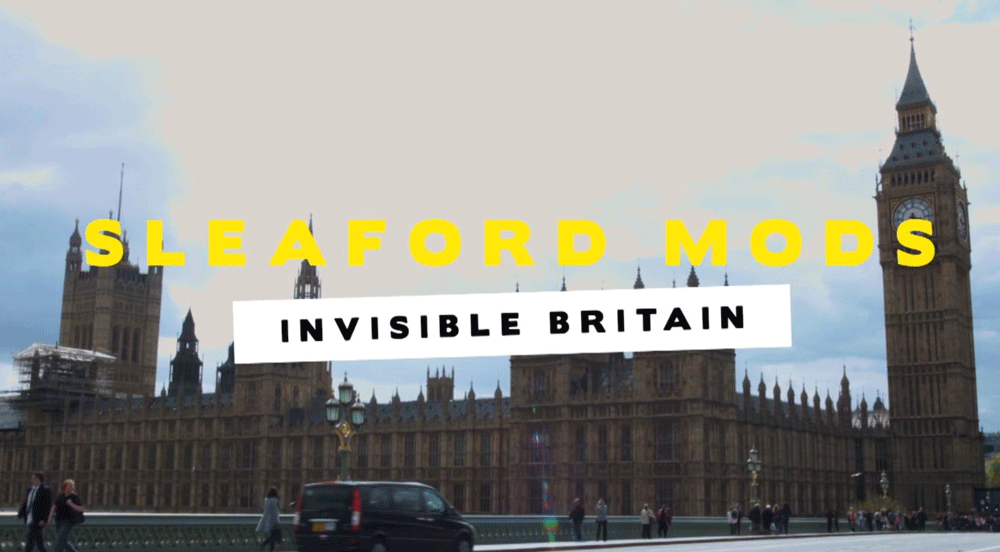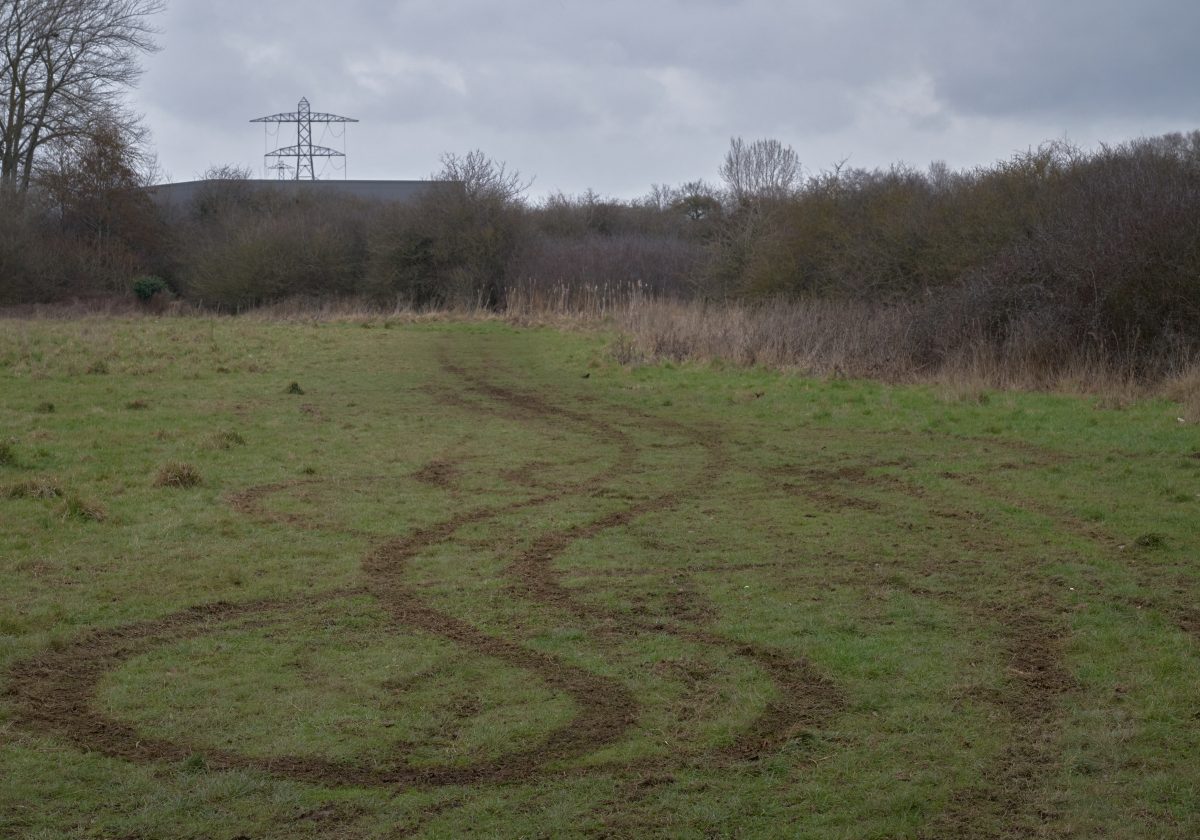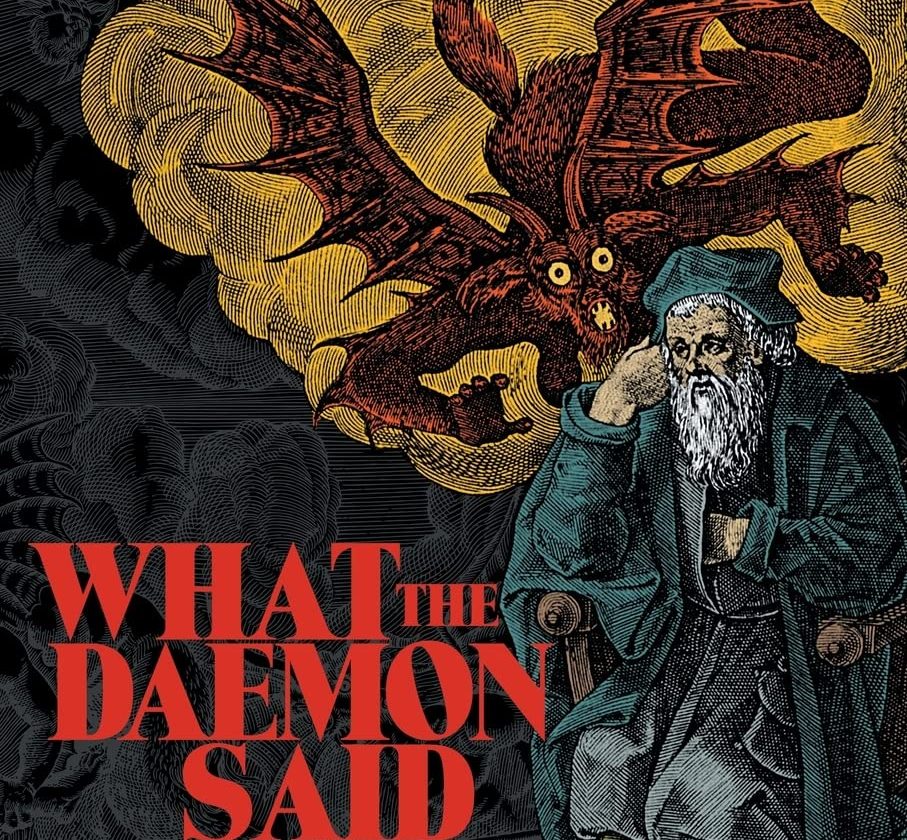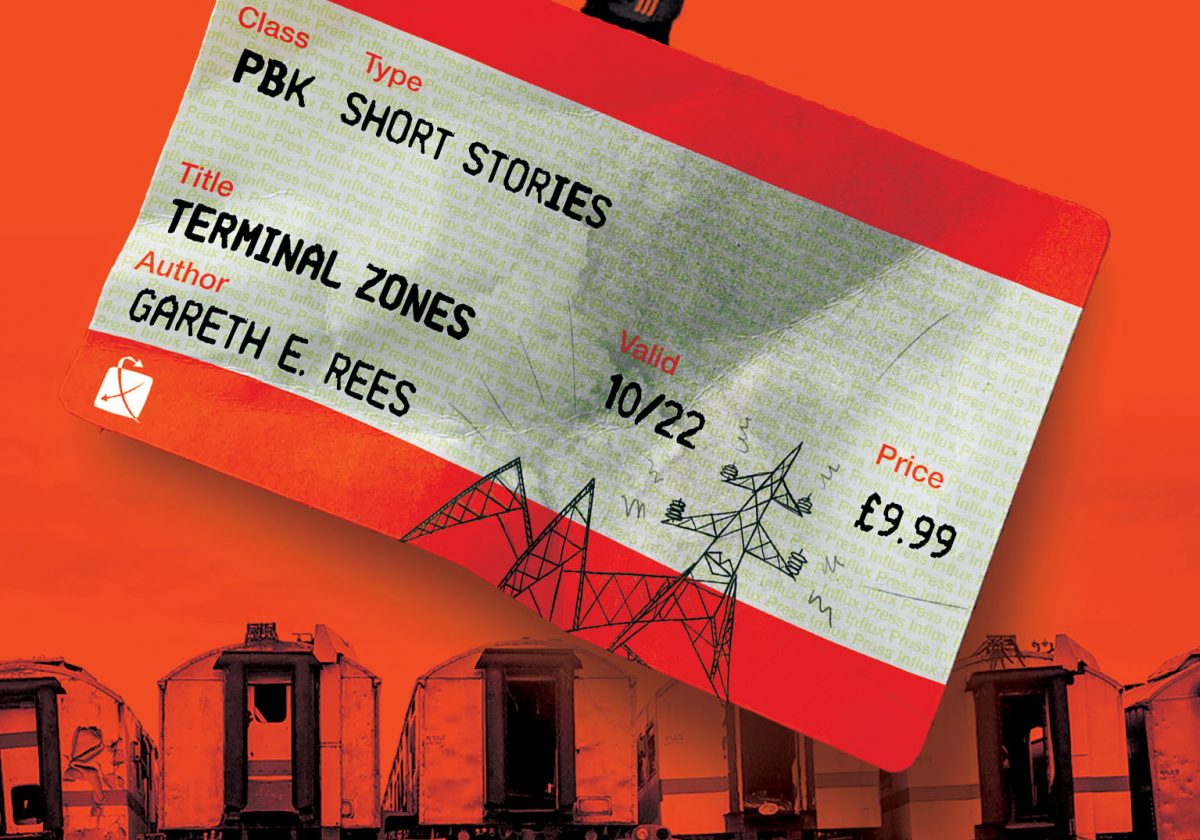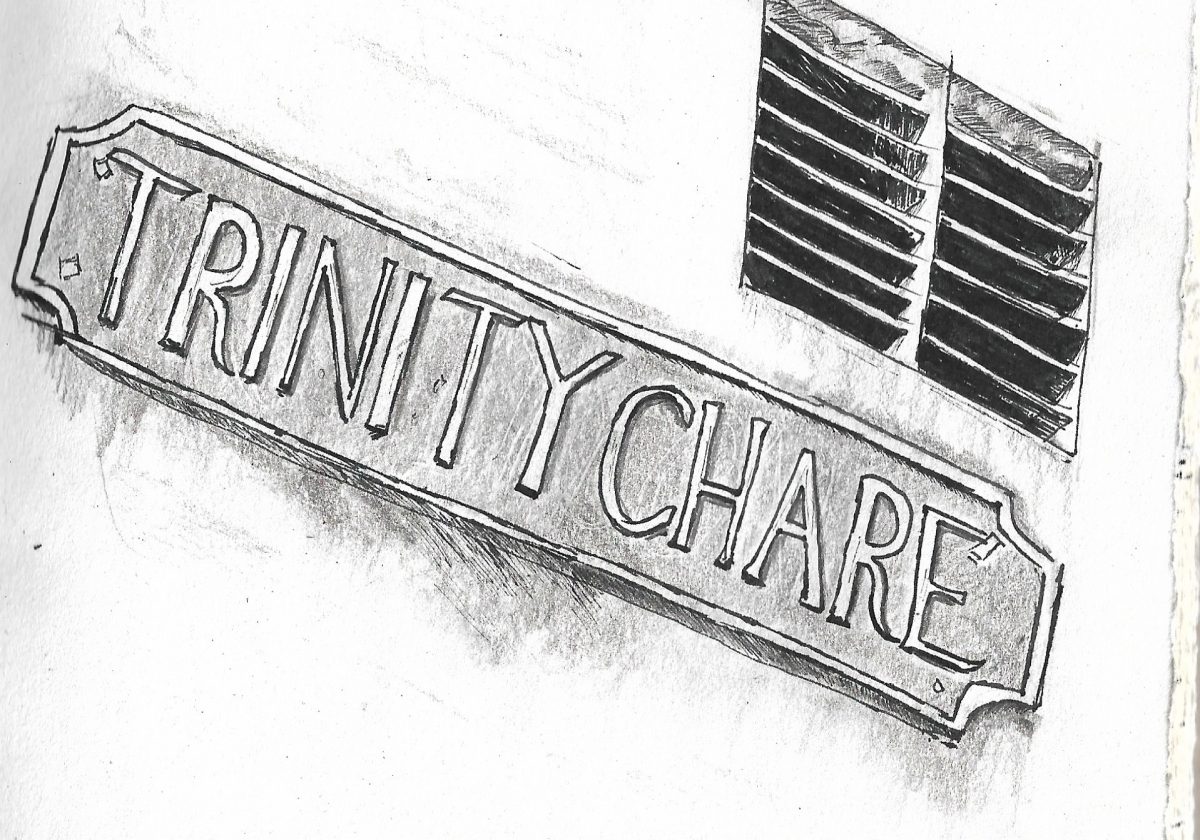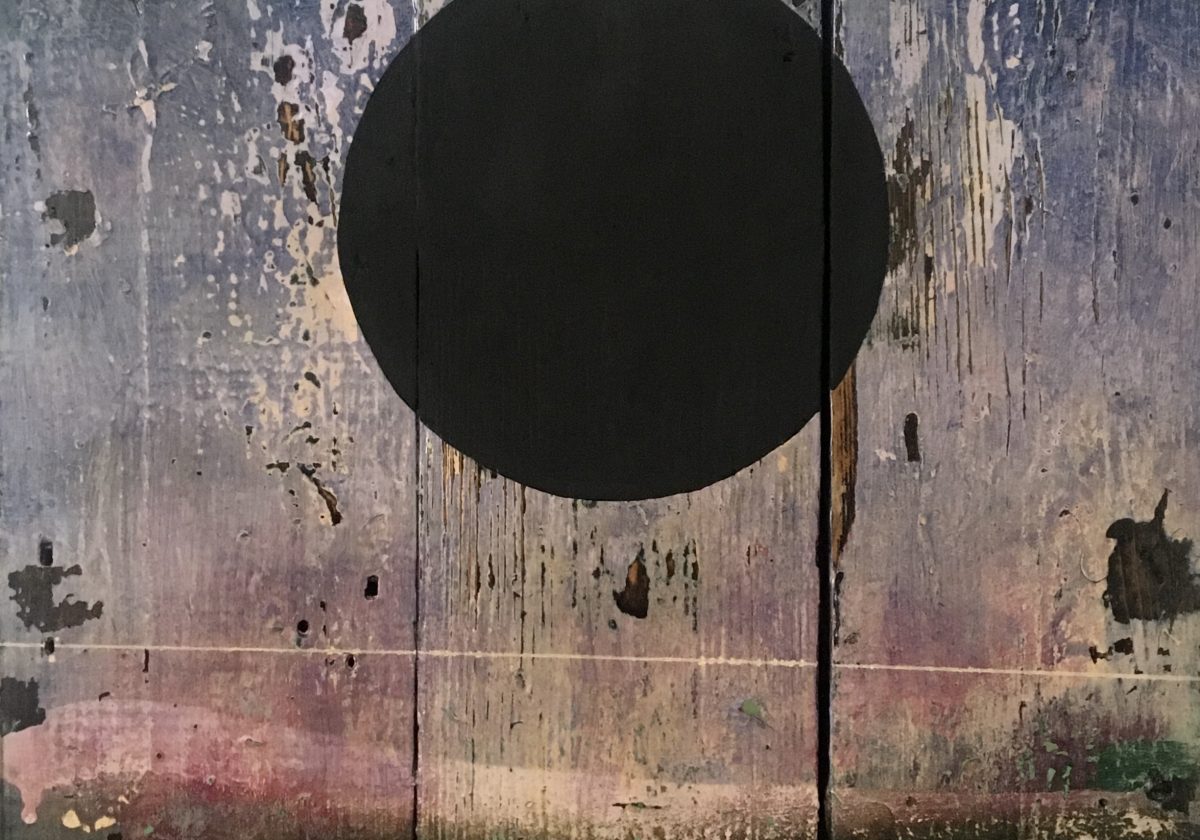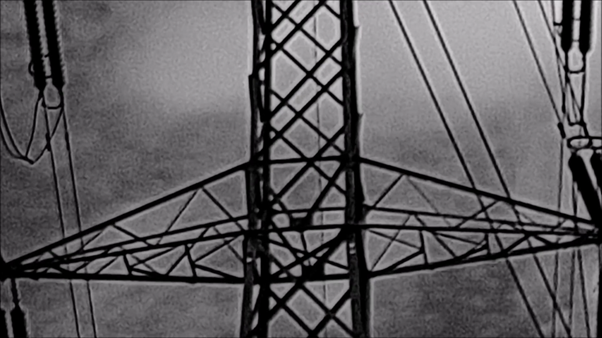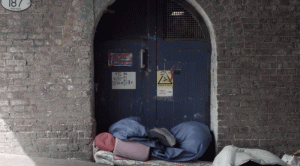
WORDS: Gareth E. Rees
In the new documentary, Sleaford Mods: Invisible Britain, Sleaford Mods (Andrew Fearn and Jason Williamson) tour parts of Britain that don’t exist in the minds of many: boarded-up streets in towns bereft of their founding industries, left to cope with the hopelessness and apathy of a disenfranchised population, depicted as ‘chavs’, scroungers and the deservingly poor by the mainstream media. A Britain of food-banks, widespread mental health issues and lowest common denominator TV culture.
The film opens with a Ballard quote – “The future is just going to be a vast, conforming suburb of the soul” – as the camera opens its eye onto a bucolic countryside scene. This is the official Britain. Picture postcard perfection. A gentle hill slopes to a quaint English town. There are signs for Helmdon, Wappenham, Towscester. Cricket is being played on the green. A red phone box. A Union Jack flutters in the breeze.
Cue: a brutal cut to an industrial scene. Demolished tower blocks. Rusting barges under a grey sky.
“Welcome to Britain 2015”, announces the narrator. “A country on the verge of a nervous breakdown”.
Sleaford Mods – Invisible Britain is one of a plethora of recent films that riff on Patrick Keiller’s psychogeographic Robinson documentaries to examine the state of the country today. One of them featured on this website is John Ledger’s Lost Bus Routes and Pre-Election Rambles, a spoken word account of a series of walks through former mining villages on the eve of the 2015 general election.
This film follows Sleaford Mods on tour in the run up to that very same election. Footage of gigs in Wakefield, Scunthorpe and Barnsley are interspersed with portraits of people struggling under the coalition’s austerity measures. Like the band’s music, the film is stripped back and to-the-point, interweaving interviews with fans and community workers with live tracks sequenced to inform or illuminate the political themes.
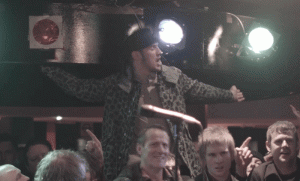
Williamson spits out his wittily cantankerous stream of consciousness to an energised crowd in Barnsley, a town ripped apart by the dismantling of coal industry. In Wakefield, Matt Abbott and Ralph Dartford from Firm of Poets talk of their attempt to bring engaging spoken word to the masses. This is something Jason Williamson achieves in lyrics that owe as much to the spirit of the Wu Tang Clan as they do to poets like Attila the Stockbroker and John Cooper Clarke.
The owners of Scunthorpe’s arts venue Café Indiependent, where the Mods play, are bastions of local culture in a town that is waiting nervously for the final steel works to close, after which the future looks like a chillingly empty space.

The tour passes through Liverpool, where the film touches on the 1981 Toxteth Riots and the attack on civil liberties that is the joint enterprise law where an entire group of people can be convicted of murder when there is not enough evidence to charge an individual. This is a Britain were a blind teenager can be jailed for his association with a kid who kicked a victim in the neck. These days a presumption of innocence depends largely on your social class, skin colour, or ability to pay your way out of shit.
This is not the future we were promised.
In the film’s band interviews, Williamson is a lot mellower than his on-stage persona and keen not to sow further seeds of division. Other social groups are not the enemy. “I don’t mind hipsters coming to our gigs,” he says. “Anyone’s welcome – except Tories.”
For news of up and coming screenings, click here. Or Follow Invisible Britain on Twitter.
Watch the trailer…
If you enjoy Invisible Britain you might also enjoy The Scene of the Crash or the other films featured on Unofficial Britain here.
ABOUT THE AUTHOR
Gareth E. Rees is the editor of Unofficial Britain and author of Terminal Zones (Influx Press, 2022) Unofficial Britain (Elliott & Thompson, 2020) Car Park Life (Influx Press 2019), The Stone Tide (Influx Press, 2018) and Marshland (Influx Press, 2013).


